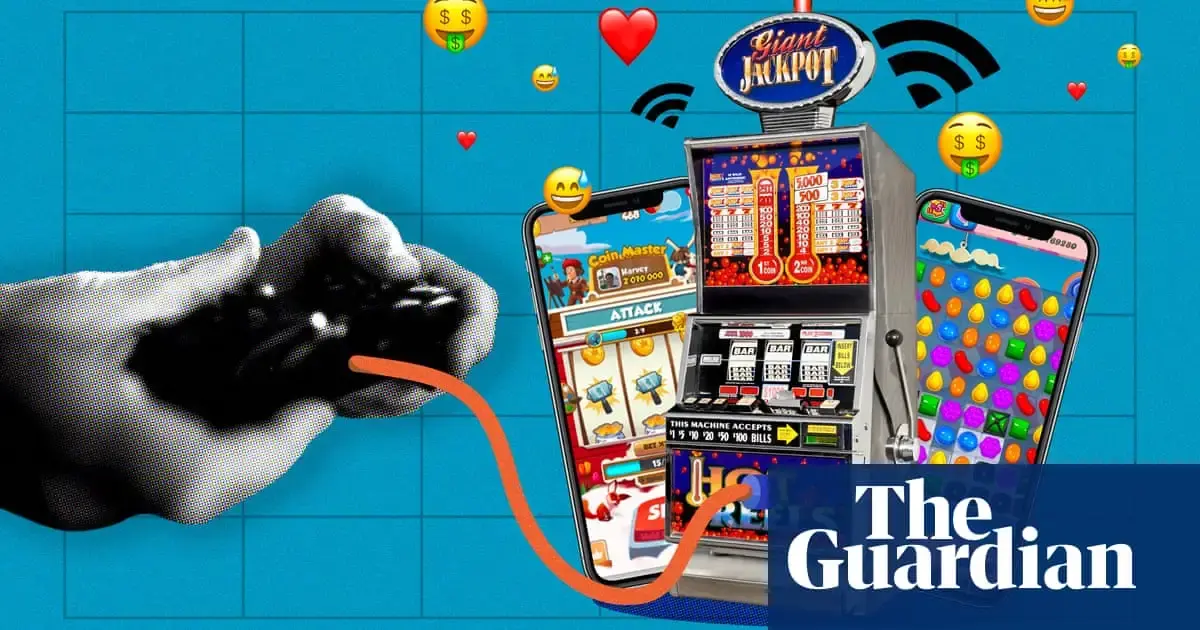- cross-posted to:
- technology@lemmy.ml
- technews@radiation.party

It’s cool that this issue is now getting mainstream coverage!

Parents badly need to understand how bad these things are, because even games explicitly for children these days are full of it, and it has been going on for over a decade already.

Not just parents – my wife has an unhealthy mobile game addiction. We’ve talked about it and talked about it, but it’s still a heavy draw for her.

I’ve been playing Asphalt 9 recently, and I’ve started hitting the walls they throw in after tens of hours in which my options are to hope for lucky draws, wait for timers to reset, and watch ads, or pay.
It’s a legitimate shame, because the game is actually super fun, but the horribly predatory monetization is effectively a guarantee that I’m never spending a dime out of spite and I’m gonna quit once I get all the Xbox achievements, which is what I originally gave the game a shot for.
Edit: did I mention that the only ways to get many cars are loot boxes? I can’t finish certain sections of the career mode right now because I don’t have required vehicles, so it’s become a game of juggling the activities I can actually do at any given time.

And this is why I no longer play mobile games. Too much BS. My phone’s battery life is thanking me.

There’s always Super Hexagon!

Asphalt 9 rocks. If they made a version where you just paid outright for it, with no further microtransactions necessary, I’d buy it in a heartbeat.

One horrendous trend in mobile gaming in the last several years are the match/merge games. People truly cannot grasp exponential change, and these devs exploit that.

Match-3 is simple and keeps getting taken up by overly-monetized shovelware. I don’t have a problem with the concept of a match-3 game itself, though. Could you explain how people are being exploited (besides the usual ”you’re out of retries, wait OR SPEND REAL MONEY” thing and making super hard levels that you can’t pass without a continue or power-ups that cost a hard-to-get premium currency that you can only get in decent quantities by SPENDING REAL MONEY) and what the exploitation has to do with exponential change? I’m not sure what you’re talking about.

Advancing a game means merging and creating new items. You start with merging two items. Then two of those items can be into another one. Then that can be merged into another , and so on. It’s an exponential system

That was the only thing I could think of for “exponential” and I’m not sure how this is exploitative.

In a recent interview, Zynga’s vice-president of player succcess, Gemma Doyle, referred unabashedly to internal models that identify people who are on course to spend high sums.
Should they reduce their outlay, she told GamesIndustry.biz, the company would “reach out and call them to find out what’s wrong”.
wtf

They use the same strategies as IRL casinos… and many other businesses.
Once upon a time, I was a regular Domino’s Pizza customer, then I stopped. A couple months later, they called me to ask “what happened”, so I told them: “had a heart attack”. Didn’t call me anymore.
I don’t blame them; stuff happens, things change, it’s smart for a business to try to adapt if they can.

Ive noticed in a lot of the ios games my kid plays, loot boxes are gone. But they’ve been replaced with spinner wheels that work like slot machines. You can spend more in game currency to increase your odds of winning loot.
This feels especially insidious in games aimed at kids.

“[Matt]has spent well in excess of £10,000 on player packs in the Fifa football game”
Holy shit. I spend a lot on video games, probably more than anyone should. But my biggest expenditures would be say a new system or peripheral. I can’t even imagine spending that much, on one game, for no good reason.
If developers and publishers of these games werent complete pieces of shit, they would at least place a cap on how much one person could spend. But they won’t.

It’s been true for a long time. Even long before the lootbox era.
Look at WoW. It was one of the biggest games in the world for the longest time. Randomized loot drops after a boss is very like a slot-machine and addictive, and you had to pay monthly to keep playing.
They’ve discovered that making people pay for each pull of the slot machine is more profitable. But the tactics and design have been around for a while.

Yeah, but WoW wasn’t as incentivized to make the game addictive as freemium games are. WoW is trying to make the game addictive enough to keep repeat customers. These freemium games are trying to make the game addictive enough so that big spenders will drop a grand.

